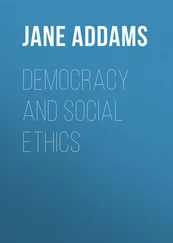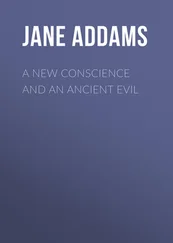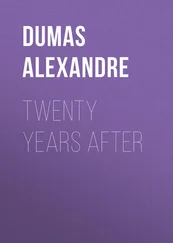Jane Addams - Twenty Years at Hull House; with Autobiographical Notes
Здесь есть возможность читать онлайн «Jane Addams - Twenty Years at Hull House; with Autobiographical Notes» — ознакомительный отрывок электронной книги совершенно бесплатно, а после прочтения отрывка купить полную версию. В некоторых случаях можно слушать аудио, скачать через торрент в формате fb2 и присутствует краткое содержание. Жанр: foreign_prose, История, foreign_edu, foreign_antique, на английском языке. Описание произведения, (предисловие) а так же отзывы посетителей доступны на портале библиотеки ЛибКат.
- Название:Twenty Years at Hull House; with Autobiographical Notes
- Автор:
- Жанр:
- Год:неизвестен
- ISBN:нет данных
- Рейтинг книги:5 / 5. Голосов: 1
-
Избранное:Добавить в избранное
- Отзывы:
-
Ваша оценка:
- 100
- 1
- 2
- 3
- 4
- 5
Twenty Years at Hull House; with Autobiographical Notes: краткое содержание, описание и аннотация
Предлагаем к чтению аннотацию, описание, краткое содержание или предисловие (зависит от того, что написал сам автор книги «Twenty Years at Hull House; with Autobiographical Notes»). Если вы не нашли необходимую информацию о книге — напишите в комментариях, мы постараемся отыскать её.
Twenty Years at Hull House; with Autobiographical Notes — читать онлайн ознакомительный отрывок
Ниже представлен текст книги, разбитый по страницам. Система сохранения места последней прочитанной страницы, позволяет с удобством читать онлайн бесплатно книгу «Twenty Years at Hull House; with Autobiographical Notes», без необходимости каждый раз заново искать на чём Вы остановились. Поставьте закладку, и сможете в любой момент перейти на страницу, на которой закончили чтение.
Интервал:
Закладка:
As our boarding-school days neared the end, in the consciousness of approaching separation we vowed eternal allegiance to our "early ideals," and promised each other we would "never abandon them without conscious justification," and we often warned each other of "the perils of self-tradition."
We believed, in our sublime self-conceit, that the difficulty of life would lie solely in the direction of losing these precious ideals of ours, of failing to follow the way of martyrdom and high purpose we had marked out for ourselves, and we had no notion of the obscure paths of tolerance, just allowance, and self-blame wherein, if we held our minds open, we might learn something of the mystery and complexity of life's purposes.
The year after I had left college I came back, with a classmate, to receive the degree we had so eagerly anticipated. Two of the graduating class were also ready and four of us were dubbed B.A. on the very day that Rockford Seminary was declared a college in the midst of tumultuous anticipations. Having had a year outside of college walls in that trying land between vague hope and definite attainment, I had become very much sobered in my desire for a degree, and was already beginning to emerge from that rose-colored mist with which the dream of youth so readily envelops the future.
Whatever may have been the perils of self-tradition, I certainly did not escape them, for it required eight years—from the time I left Rockford in the summer of 1881 until Hull-House was opened in the the autumn of 1889—to formulate my convictions even in the least satisfactory manner, much less to reduce them to a plan for action. During most of that time I was absolutely at sea so far as any moral purpose was concerned, clinging only to the desire to live in a really living world and refusing to be content with a shadowy intellectual or aesthetic reflection of it.
[Editor: Mary Mark Ockerbloom]
This chapter has been put on-line as part of the BUILD-A-BOOK Initiative at the Celebration of Women Writers. Initial text entry and proof-reading of this chapter were the work of volunteer Diana Camden.
[Editor: Mary Mark Ockerbloom]
[A Celebration of Women Writers]
"Chapter IV: The Snare of Preparation." by Jane Addams (1860-1935) From: Twenty Years at Hull-House with Autobiographical Notes. by Jane Addams. New York: The MacMillan Company, 1912 (c.1910) pp. 65-88.
[Editor: Mary Mark Ockerbloom]
CHAPTER IV
THE SNARE OF PREPARATION
The winter after I left school was spent in the Woman's Medical College of Philadelphia, but the development of the spinal difficulty which had shadowed me from childhood forced me into Dr. Weir Mitchell's hospital for the late spring, and the next winter I was literally bound to a bed in my sister's house for six months. In spite of its tedium, the long winter had its mitigations, for after the first few weeks I was able to read with a luxurious consciousness of leisure, and I remember opening the first volume of Carlyle's "Frederick the Great" with a lively sense of gratitude that it was not Gray's "Anatomy," having found, like many another, that general culture is a much easier undertaking than professional study. The long illness inevitably put aside the immediate prosecution of a medical course, and although I had passed my examinations creditably enough in the required subjects for the first year, I was very glad to have a physician's sanction for giving up clinics and dissecting rooms and to follow his prescription of spending the next two years in Europe.
Before I returned to America I had discovered that there were other genuine reasons for living among the poor than that of practicing medicine upon them, and my brief foray into the profession was never resumed.
The long illness left me in a state of nervous exhaustion with which I struggled for years, traces of it remaining long after Hull-House was opened in 1889. At the best it allowed me but a limited amount of energy, so that doubtless there was much nervous depression at the foundation of the spiritual struggles which this chapter is forced to record. However, it could not have been all due to my health, for as my wise little notebook sententiously remarked, "In his own way each man must struggle, lest the moral law become a far-off abstraction utterly separated from his active life."
It would, of course, be impossible to remember that some of these struggles ever took place at all, were it not for these selfsame notebooks, in which, however, I no longer wrote in moments of high resolve, but judging from the internal evidence afforded by the books themselves, only in moments of deep depression when overwhelmed by a sense of failure.
One of the most poignant of these experiences, which occurred during the first few months after our landing upon the other side of the Atlantic, was on a Saturday night, when I received an ineradicable impression of the wretchedness of East London, and also saw for the first time the overcrowded quarters of a great city at midnight. A small party of tourists were taken to the East End by a city missionary to witness the Saturday night sale of decaying vegetables and fruit, which, owing to the Sunday laws in London, could not be sold until Monday, and, as they were beyond safe keeping, were disposed of at auction as late as possible on Saturday night. On Mile End Road, from the top of an omnibus which paused at the end of a dingy street lighted by only occasional flares of gas, we saw two huge masses of ill-clad people clamoring around two hucksters' carts. They were bidding their farthings and ha'pennies for a vegetable held up by the auctioneer, which he at last scornfully flung, with a gibe for its cheapness, to the successful bidder. In the momentary pause only one man detached himself from the groups. He had bidden in a cabbage, and when it struck his hand, he instantly sat down on the curb, tore it with his teeth, and hastily devoured it, unwashed and uncooked as it was. He and his fellows were types of the "submerged tenth," as our missionary guide told us, with some little satisfaction in the then new phrase, and he further added that so many of them could scarcely be seen in one spot save at this Saturday night auction, the desire for cheap food being apparently the one thing which could move them simultaneously. They were huddled into ill-fitting, cast-off clothing, the ragged finery which one sees only in East London. Their pale faces were dominated by that most unlovely of human expressions, the cunning and shrewdness of the bargain-hunter who starves if he cannot make a successful trade, and yet the final impression was not of ragged, tawdry clothing nor of pinched and sallow faces, but of myriads of hands, empty, pathetic, nerveless and workworn, showing white in the uncertain light of the street, and clutching forward for food which was already unfit to eat.
Perhaps nothing is so fraught with significance as the human hand, this oldest tool with which man has dug his way from savagery, and with which he is constantly groping forward. I have never since been able to see a number of hands held upward, even when they are moving rhythmically in a calisthenic exercise, or when they belong to a class of chubby children who wave them in eager response to a teacher's query, without a certain revival of this memory, a clutching at the heart reminiscent of the despair and resentment which seized me then.
For the following weeks I went about London almost furtively, afraid to look down narrow streets and alleys lest they disclose again this hideous human need and suffering. I carried with me for days at a time that curious surprise we experience when we first come back into the streets after days given over to sorrow and death; we are bewildered that the world should be going on as usual and unable to determine which is real, the inner pang or the outward seeming. In time all huge London came to seem unreal save the poverty in its East End. During the following two years on the continent, while I was irresistibly drawn to the poorer quarters of each city, nothing among the beggars of South Italy nor among the salt miners of Austria carried with it the same conviction of human wretchedness which was conveyed by this momentary glimpse of an East London street. It was, of course, a most fragmentary and lurid view of the poverty of East London, and quite unfair. I should have been shown either less or more, for I went away with no notion of the hundreds of men and women who had gallantly identified their fortunes with these empty-handed people, and who, in church and chapel, "relief works," and charities, were at least making an effort towards its mitigation.
Читать дальшеИнтервал:
Закладка:
Похожие книги на «Twenty Years at Hull House; with Autobiographical Notes»
Представляем Вашему вниманию похожие книги на «Twenty Years at Hull House; with Autobiographical Notes» списком для выбора. Мы отобрали схожую по названию и смыслу литературу в надежде предоставить читателям больше вариантов отыскать новые, интересные, ещё непрочитанные произведения.
Обсуждение, отзывы о книге «Twenty Years at Hull House; with Autobiographical Notes» и просто собственные мнения читателей. Оставьте ваши комментарии, напишите, что Вы думаете о произведении, его смысле или главных героях. Укажите что конкретно понравилось, а что нет, и почему Вы так считаете.
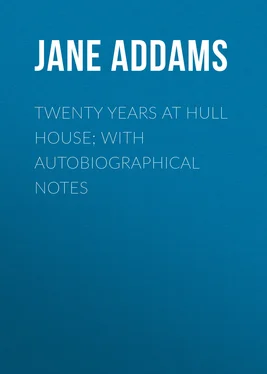
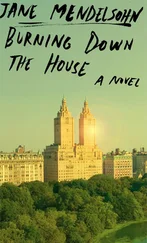



![О Генри - Через двадцать лет [After Twenty Years]](/books/415401/o-genri-cherez-dvadcat-let-after-twenty-years-thumb.webp)


